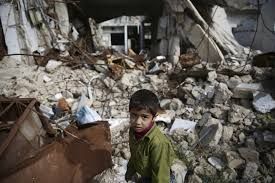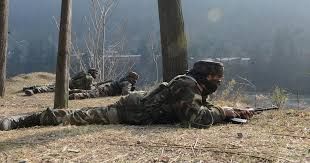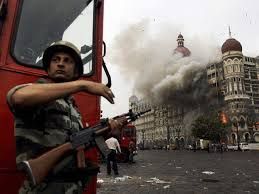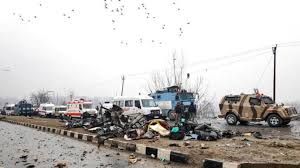Banish Terrorism, Relish Peace!
May 09, 2019 • 10 views
Terrorism has emerged as a major threat to the unity and integrity of India and across the world as well. The masterminds of terror seek to achieve their objectives by creating an atmosphere of fear with a view to destabilize India. The major regions affected by terrorist activities in India include Jammu and Kashmir, east-central and south-central India (Naxalism) and the Seven Sisters (North-East). There is a big difference between Terrorism and Naxalism, terrorist are against national integrity while the naxalites are against the policies of government.
Terrorism is a psychological warfare. Terrorist try to manipulate us and change our behaviour by creating fear, uncertainty, and division in the society.

India has long been a victim of terrorism. Terrorism in India is said to be largely sponsored by Pakistan, through its secret service and intelligence agency, Inter-Services Intelligence (ISI). Pakistan has consistently denied its involvement, but in July 2016, the Indian Government released the data on a series of terror strikes in India since 2005 that claimed 707 lives and left over 3,200 injured, all pointing at Pakistan’s involvement.
Causes of Terrorism
There are several causes of terrorism in India: political, economic, and religious.
The Political cause of terrorism is primarily seen in Tripura and Assam where the political factors resulted in terrorism after the respective state governments failed to control and manage the large-scale illegal Muslim immigration from Bangladesh. The terrorist outfits capitalized upon the alienation of the daughters and sons of the soil who did not wish to share the opportunities of employment with the refugees.
Madhya Pradesh, Bihar, Orissa and Andhra Pradesh are prime examples of economic causes of terrorism in India. Factors such as rural unemployment, exploitation of landless labourers and lack of land reforms created perceptions of gross social injustice. All this led to the rise of ideological groups such as the several Maoist groups waging a war against the State.
One of instance of religious terrorism was the growth of Sikh militancy in Punjab for the creation of an independent Sikh nation called Khalistan. In Jammu and Kashmir, the dream of a separate Kashmir nation has drawn many Muslim organizations together against India.

In J&K, there is an unmistakable religious angle to terrorism. Pakistan has been making consistent efforts to cause religious polarization in the state. The state has various pro-Pak terrorist organizations such as Jaish-e-Mohammad and Hizbul Mujahideen. Terrorist and insurgent groups in India receive funding from various sources such as Pakistan’s Inter-Services Intelligence (ISI); religious, fundamentalist and pan-Islamic jihadi organizations in Pakistan; ostensibly charitable organizations in Pakistan and Saudi Arabia
Terrorist Attacks in India
Terrorists have struck time and again in India. Some of such incidents are as follows:
1985 bombing of an Air India flight from Canada to India, killing all 329 people on board.
1993 Mumbai bomb blasts, which killed about 250 civilians.

2001 Attack on Indian Parliament on 13 December 2001, in which 9 policemen and parliament staff were killed, besides all five terrorists who were identified as Pakistani nationals.
2005 Delhi bombings on 29 October 2005, which killed more than 60 people and injured at least 200 others.
2006 Mumbai attack, when two of the prime hotels, a landmark train station, and a Jewish Chabad house, in South Mumbai, were attacked and sieged.
2007 Hyderabad bombings, where two bombs exploded almost simultaneously on 25 August 2007.
2007 Mecca Masjid bombing in Hyderabad which left 15 people dead in the immediate aftermath.
2010 Varanasi bombing on 7 December 2010 that killed a toddler, and set off a stampede in which 20 people, including four foreigners, were injured.
2011 High Court bombing on Wednesday, 7 September 2011 at outside Gate No. 5 of the Delhi High Court, killing 12 people and injuring 76.
2015 Gurdaspur attack in Dina Nagar, Gurdaspur, Punjab, killing 10 people.
2016 attack at Pathankot Air Force Station, killing 7 people.
2016 Pampore attack, claiming 8 lives.
2016 Uri attack that left 20 dead.
2016 Baramulla attack and 2016 Handwara attack at Rashtriya Riffles Camp, many more.

Terrorism presents a grave challenge to the people and government of India. If we want to effectively deal with this menace, the entire nation needs to stand united to fight the perpetrators of terror. All political parties need to rise above their partisan lines to give a befitting reply to terrorists and their masterminds operating from across the borders. India has to demonstrate that it is not a soft state but a capable nation with zero tolerance to any terrorist activities carried out by the enemies of the nation.
